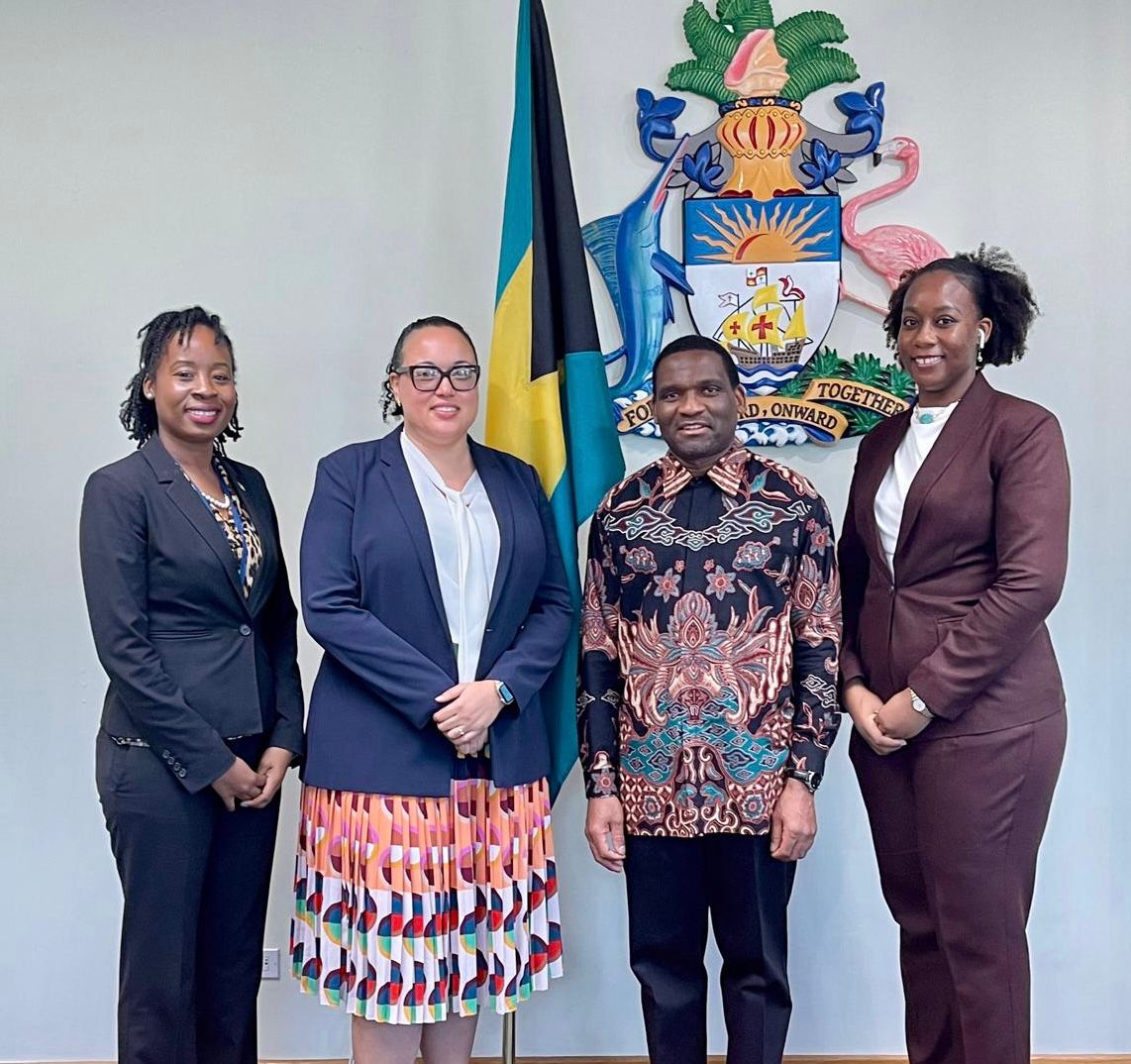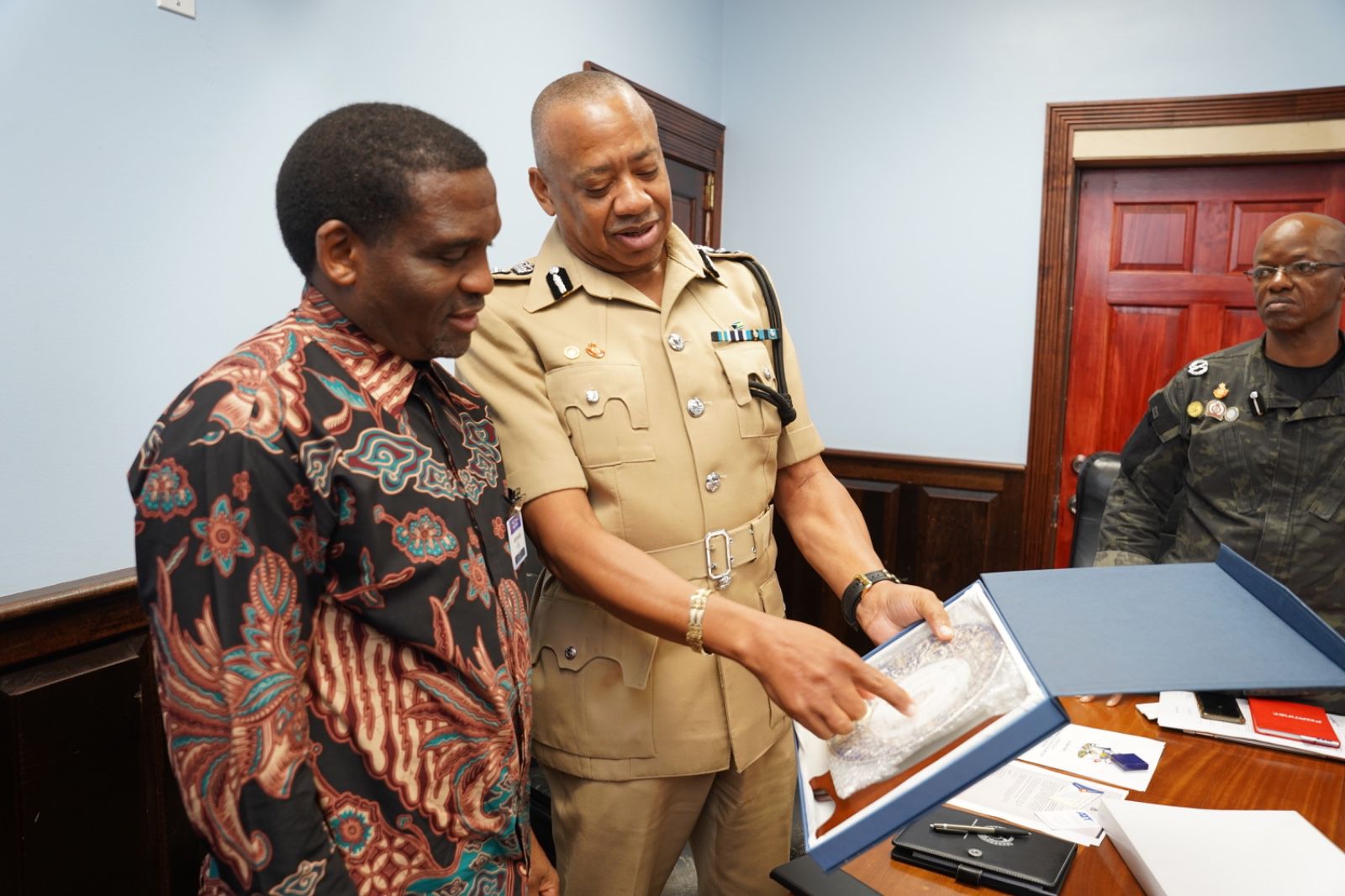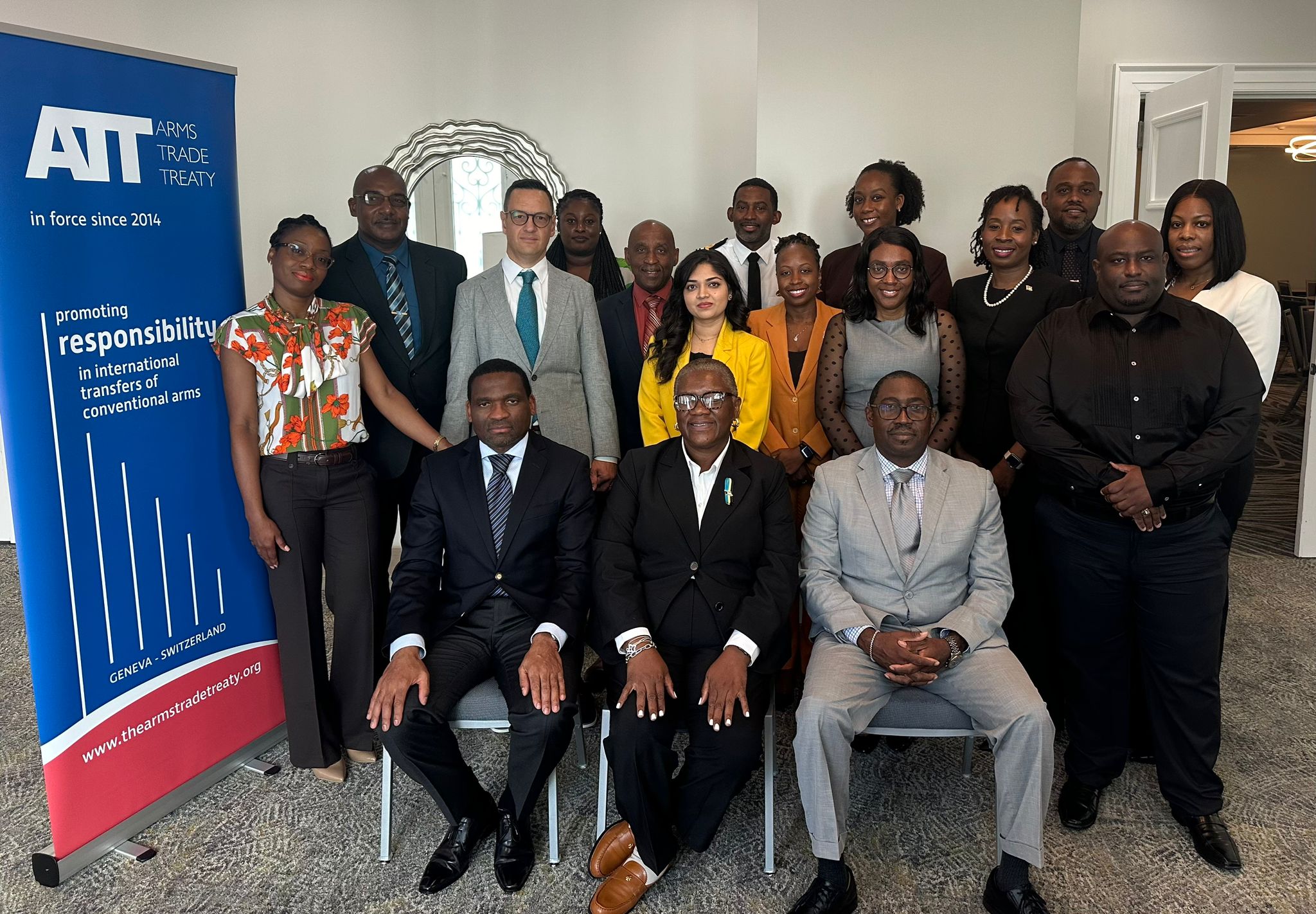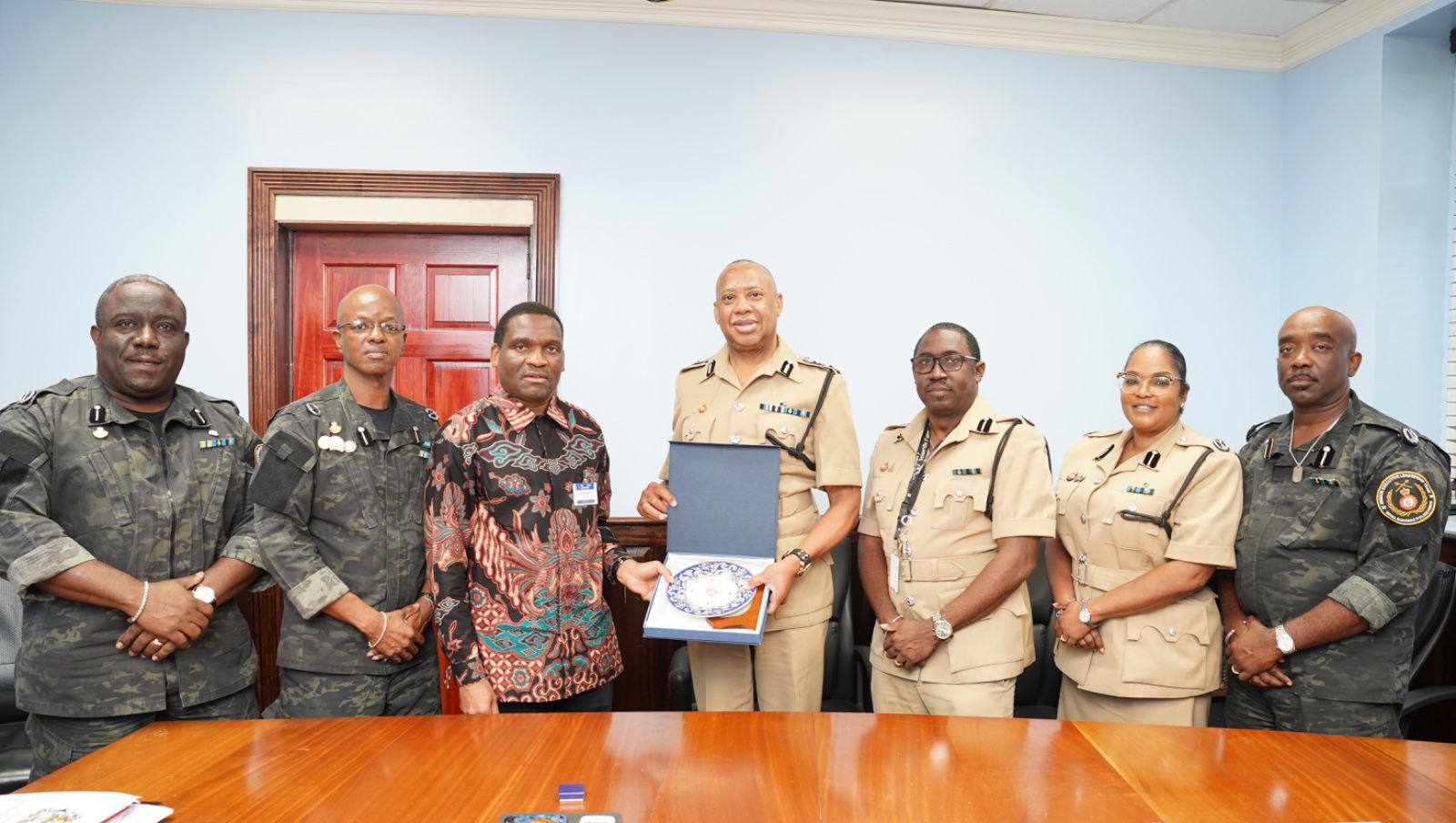Arms Trade Treaty (ATT) Regional Workshop on Practical Reporting for Caribbean States held in Nassau, The Bahamas

UN ATT Secretariat Mr. Dumisani Dladia (center-right) on a courtesy call with Director General Jerusa Ali (center-left), Ms Marjorie Julien (far-left) and Ms. Danielle Smith (far-right)
7th October, 2024
On 4 October 2024, the Head of the United Nations Arms Trade Treaty (ATT) Secretariat Mr. Dumisani Dladla, paid courtesy calls on Ambassador Jerusa Ali, Director General of the Ministry of Foreign Affairs and Commissioner of Police, Clayton Fernander, QPM and the senior command of Royal Bahamas Force following the successful conclusion of a 4-day Workshop in The Bahamas.
The United Nations Arms Trade Treaty Secretariat hosted the first Regional Workshop on Practical ATT Reporting for Caribbean States this week in Nassau, The Bahamas from 30 September to 3 October 2024, in the framework of the EU-funded ATT-Implementation Support Project (ATT-ISP), which aims to support States in the effective implementation of the ATT.
Mr. Dladla met with the Director General Jerusa Ali and the Commissioner of Police Clayton Fernander, to discuss The Bahamas efforts to implement the Arms Trade Treaty (ATT) in The Bahamas and the financial assistance available through the ATT Voluntary Trust Fund available to achieve its ATT-related goals. As the Licensing Authority for the import and export of firearms for The Bahamas, the Commissioner of Police reaffirmed The Bahamas’ commitment to the full implementation of the ATT domestically.
The Regional Workshop provided practical training to 17 participants from ten (10) Caribbean countries, with low reporting rates in order to increase reporting obligations and raise the compliance capacity of ATT States Parties. These Caribbean countries include Antigua & Barbuda, The Bahamas, Barbados, Belize, Guyana, Jamaica, Saint Kitts & Nevis, Saint Lucia, Saint Vincent & the Grenadines and Trinidad & Tobago.
Key Senior Officials from the Office of the Attorney General and Ministry of Legal Affairs, Ministry of Foreign Affairs, the Royal Bahamas Police Force and the Customs Department participated in this critical capacity building workshop. It provided much needed training and technical support in the effective implementation of the ATT, reporting obligations compliance and raised awareness financial and technical assistance available to Caribbean countries to assist in their national implementation efforts.
The Bahamas became a State Party to the United Nations Arms Trade Treaty (ATT) on 24 December 2014, and was among the first countries to have signed the treaty upon its opening to signature on 3 June 2013. The Bahamas played a pivotal role, along with CARICOM in the adoption of the ATT, having successfully negotiated the inclusion of the issue of small arms and light weapons in the Arms Trade Treaty, which was initially focused on conventional arms only. Small arms and light weapons or firearms are a critically important issue for the region. The illicit use of firearms as the main weapon of choice in homicides, youth violence, armed robberies, and other serious crimes against the person is alarming in The Bahamas and the Caribbean region. The Bahamas is deeply committed to protecting its people and as such, is seized with instituting measures to ensure the effective regulation of small arms and light weapons.



